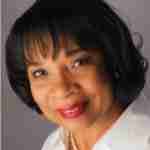By MICHELLE HOLLINGER
MHollinger@SFLTimes.com
As a child, Deborah Mizell’s proclivity to take care of others offered a clue to the profession she would choose. Her father was a physician who wanted his daughter to follow in his footsteps. She resisted; preferring nursing instead.
“When someone got sick in the neighborhood or got hurt, they’d call me. I was in training back then and it convinced me that that’s what I wanted to do,” said Mizell, who is president of the newly launched Greater Fort Lauderdale, Broward County Chapter of the National Black Nurses Association.
Although she considered the organization three years ago, her busy life precluded meaningful involvement so she waited until the spirit moved her. Since taking over the leadership role of the organization that opened in July, Mizell has “hit the ground running.”
The group is already growing; increasing from its initial 16 to 26 following an open house last month. Mizell wants the organization to have at least 65 members when the national conference rolls around in July, 2016.
While the national organization was created in 1971 as a voice for black nurses, it has since expanded and is now open to all nurses. “There is power in numbers, power in diversity,” said Mizell, who explained that the Broward chapter “Started out with diversity, whites Jamaicans, blacks, male, female; a reflection of the nursing community today.”
According to Supplemental Healthcare, an employment site for the nursing field, “The demand for nurses is expected to remain high.”
Once someone chooses the profession, Mizell encourages Broward-based nurses to join the NBNA’s Broward chapter in order to remain abreast of developments affecting their career; one of which will occur in five years when the educational requirements for registered nurses will change.
“By 2020, 80 percent of RNs will need to be bachelor’s prepared. A lot of RNs are not even familiar with that fact.”
Mizell compared the pending change to the modified requirements in the late 1980s that resulted in unprepared licensed practical nurses being demoted to home health aides.
Conveying a sense of urgency when she discusses the change, Mizell said, “If you’re going to be working five to ten years more, you need to get prepared now.” She also acknowledges the fear that some in the profession might be experiencing. “A lot of them are afraid to go back to school. School has changed a lot and they’re alot older.”
Helping them to overcome their fear is the first step. “Once we get these nurses prepared to go to school, at least mentally, the finance comes up. They’re going to need help. We want to be able to give scholarships to those nurses that we reach.
A scholarship that is currently available is provided by Mizell’s employer, VITAS Healthcare, to students matriculating at Broward College’s central campus.
“We have an eight week course where we teach the nurses about end of life care. We have nurses that don’t know how to take care of people who are dying,” Mizell shared of the full ($10,000) tuition scholarship that “pays for everything,” and only requires a two year employment commitment with VITAS.
In addition to providing scholarships, the Broward branch of the NBNA will also provide mentoring so that “the younger nurses know that there is value in the older nurses because you don’t learn everything in school.”
Mizell advises nurses to explore the profession, dabbling in a variety of nursing specialties until they find their passion for practical, personal and professional reasons.
“A lot of nurses come out of school and remain in one specialty, locked in that particular area,” she explained. “Too many of them get caught in that one thing, and when something happens, they have nowhere to go.”
According to the University of Notre Dame, a couple of trends to watch that impact nursing include a shift in demographics (people are living longer) and preventive care (people are working harder to remain healthy), among others.
Mizell encourages nurses to be mindful of the trends and to be proactive about accessing the various specialties. She speaks from experience.
“I tried ophthalmology, dialysis, end stage cancer treatments, orthopedics, urology. Every time there was an opportunity, I jumped into it.”
Explore several specialties and become certified in the area you’re passionate about and feel comfortable in, Mizell advises nurses.
“I wish someone had given me that guidance when I first started out.”
For more information, visit http://www.nbna.org/AF_MemberCommittee.asp?committeeid=149 or call (954) 486-4085.










No Comment